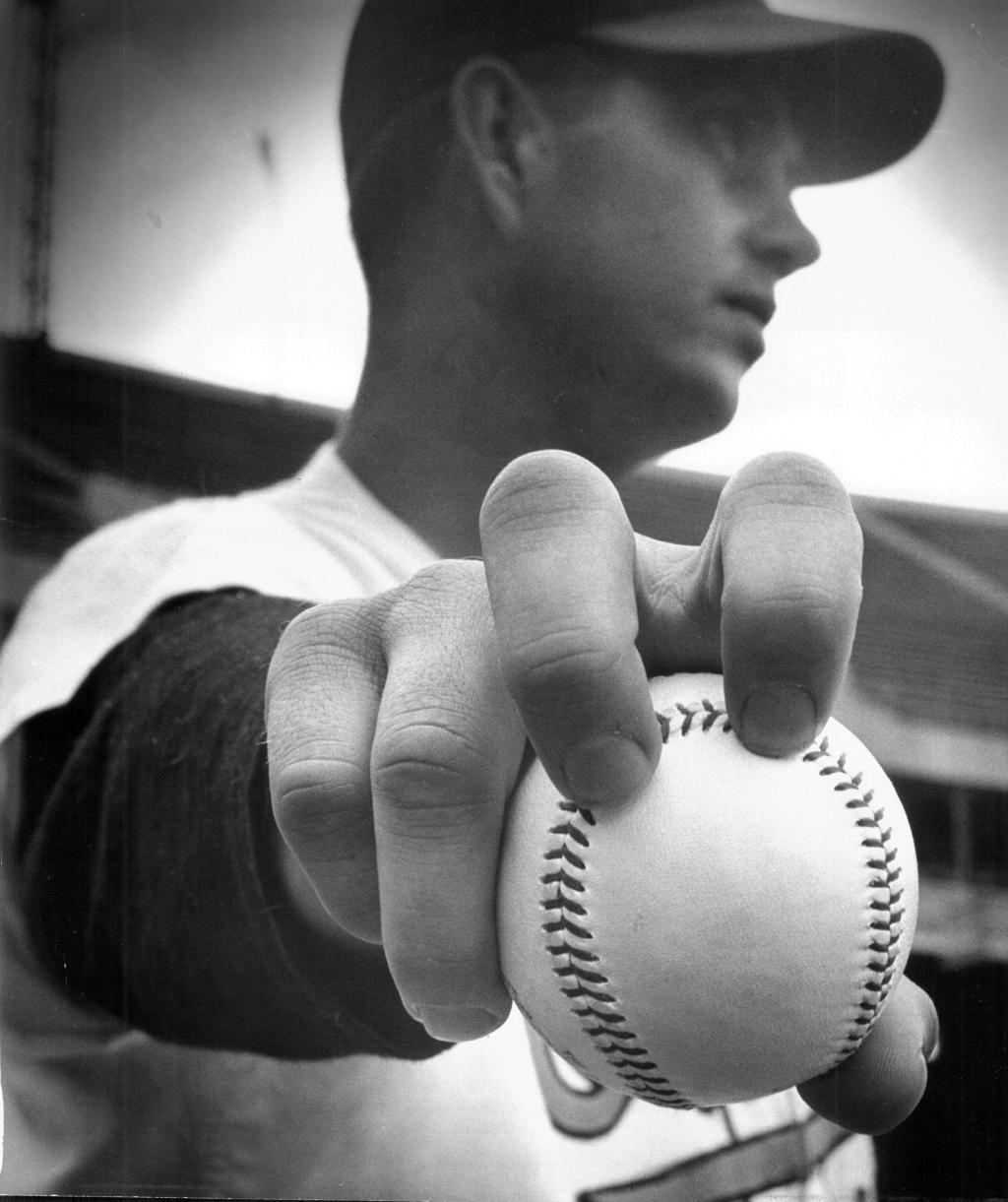
When Orioles pitcher Hoyt Wilhelm’s knuckleballs baffled the mighty Yankees – The Denver Post

Sixty-five years ago, the struggling Orioles bought an aging relief pitcher, on the cheap, to help their porous bullpen. At 36, Hoyt Wilhelm’s best years were thought to be behind him. Moreover, his best pitch, the knuckleball, was a fluttery offering that drove catchers nuts, eluded their grasp and created havoc. But the Orioles, 17 games off the pace, took a chance on the soft-throwing right-hander and, on Aug. 23, 1958, claimed Wilhelm off waivers from the Cleveland Indians for $20,000.
A little less than a month later, given a chance as a starting pitcher, Wilhelm shocked baseball by throwing a no-hitter — on national TV, against the American League-leading New York Yankees — on a drizzly Saturday before more than 18,000 giddy fans at Memorial Stadium.
The 1-0 victory on Sept. 20, the first no-hitter in modern Orioles history, gave Baltimore baseball credence and helped trigger a winning mindset in the club that would last for decades, said Brooks Robinson, now 86.
“Hoyt’s performance was the biggest thing that had ever happened to the Orioles,” said Robinson, the Hall of Fame third baseman who played in that game at age 21. “It gave us a big, big boost of confidence. We left [the field] looking forward to better things. After that, we got good in a hurry.”
The Orioles, who’d labored since entering the AL in 1954, would enjoy winning seasons in 24 of the next 27 years.
Wilhelm’s feat was remarkable, given that he’d pitched 403 games in relief before ever starting one in 1958. He flummoxed the Yankees, faced 28 batters (one over the minimum) and struck out eight, including Mickey Mantle. All told, Wilhelm threw just 99 pitches — 90% of them knuckleballs, which danced their way past flailing batters.
“Hoyt’s knuckleball was amazing; I still can’t explain it,” Orioles catcher Gus Triandos told The Sun years later. “Most knucklers drop, but Hoyt’s pitch stayed alive and kind of waved at you as it went by.”
Wilhelm baffled New York’s best.
“You know it’s coming, but you don’t know where,” Yankees Hall of Fame catcher Yogi Berra said of that knuckleball. “I don’t think [Wilhelm] does, either.”
New York would not lose another no-hitter for 45 years, until 2003.
In winning, the soft-spoken pitcher defeated Don Larsen, who’d thrown a perfect game for the Yankees in the 1956 World Series. Further, Wilhelm did it on his seventh wedding anniversary. He’d phoned his wife beforehand, apologized for forgetting the date and asked what gift she wanted.
“Let’s win one,” Peggy Wilhelm said.
The final out was a lazy pop-up by New York’s Hank Bauer, who’d go on to manage the Orioles to a world championship in 1966. At game’s end, The Sun reported, “the crowd gave out with a great roar,” and fans scoured the stands for ticket stubs to keep as mementos.
In the clubhouse, after hugs and handshakes, Wilhelm thanked Triandos, whose seventh-inning home run had provided the game’s only run. Never much for words, the pitcher wandered about aimlessly, as if in a daze.
”Jeez,” he mumbled in a Carolina drawl, through a wad of chewing tobacco. “Jeez, oh, jeez.”
Baltimore reacted in kind. The Sun published an editorial to celebrate. Several days later, Wilhelm appeared at the Century Theater, on Lexington Street, where he was trotted onstage to raucous applause at the local premiere of the film “Damn Yankees.”
Nicknamed “Old Sarge” (he received a Purple Heart in World War II), Wilhelm spent four-plus years with the Orioles who, given his gem against New York, made him a starter in 1959. He won 15 games, made the All-Star team and finished with an AL-best ERA of 2.19. Again, he bedeviled the world champion Yankees, tossing a one-hitter against them in May and a shutout six days later. Gradually, as the Orioles’ young staff blossomed, Wilhelm slipped back to the bullpen.
In 1963, at age 40, he was dealt to the Chicago White Sox in a trade that brought coveted shortstop Luis Aparicio to Baltimore. Incredibly, Wilhelm would pitch for 10 more years, make the All-Star team at age 47 and retire five days shy of his 50th birthday.
In 1985, he entered the Baseball Hall of Fame, trumpeted as the first relief pitcher so honored. Baltimore knew better. Wilhelm died Aug. 23, 2002, the same day that, decades earlier, he had become an Oriole.
()





